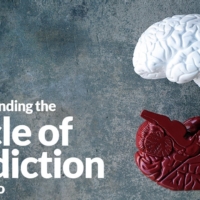5 Ways School Can Hurt Your Mental Health | GIVEAWAY: BACK TO SCHOOL!
(lighthearted guitar music) – Hey everyone. Thank you for your
continued love and support, and we hope you’re all having
a great weekend so far. Psych2Go’s vision is to
make psychology acceptable for everyone, as well as
occasionally covering topics around mental health. Our mission is to help
everyone become more self-aware of the various psychological
factors that affect one’s life. One central aspect of life is school. So, watch along to find out how school is affecting your mental health. School is often considered
a positive place where students can learn, play, and build friendships
in a safe environment. Most students enjoy school as
they get to meet new people, spend time with their
friends and socialize. However, several factors
of school can be negative to a student’s mental health. Here are five ways the school can be harmful to your mental health and
some hacks to tackle them.
One is bullying. Despite the safe environment that schools provide for socializing, bullying among students is
rather common in schools. According to a survey conducted
by Ditch the Label in 2019, an estimated six in 10 youths experience some form of bullying
throughout their lives, especially with the
prevalence of social media. The process of cyberbullying carries on even outside of school. And of course, being a victim of bullying can negatively affect an
individual’s mental wellbeing. It was found in a gram study that victims of bullying
often have low self-esteem and are at higher risk of
developing anxiety and depression, due to reasons such as peer
isolation and physical abuse. The trick is to not be
afraid of speaking out. There are recorded instances
where the situation got better when parents or teachers got involved. The same is the case with cyberbullying. If we let those we trust know about it, they’re sure to help us
resolve and cope with it. Social media platforms
are increasingly becoming well-equipped with functions that can help with cyber bullies, such
as blocking and filtering.
It can, however, be difficult
to deal with cyberbullying due to the free access to the web. Therefore, if you feel overwhelmed, it’s important to disconnect
now and then. Two, Academic results. Stress from academics can cause harm to an individual’s mental health as well. It’s all about getting that A in school, so students feel pressured
to excel in their academics. The pressure also stems
from other sources, such as expectations
from teachers and parents and even self-expectations. It has been found that
academic stress in students often develops into anxiety. It gives way to low self-esteem
due to fears of inferiority or depression from the inability
to live up to expectations, which in turn could affect
their academic results even further. Communicating with teachers
and parents helps relieve exam stress a great deal. Taking assistance for aspects of academics that are causing stress can
also give you a new perspective. Group study or associating
with peers facing the same difficulties helps you to see you’re not alone in this.
They can guide and help you overcome these difficulties step-by-step. Although grades are an important
element of our academics, it’s not the only factor
that dictates our future. Having self-reassurance can also help when dealing with academic stress. Three, assignments. Assignments after a long day
of school are a hassle no less. It overwhelms students to know
that they have to invest their much cherished free time to complete their assignments. In a survey by Phoenix University, it was found that high school students are laden with 17.5 hours
of homework per week. Constantly having the
thought of unfinished work on their minds takes the fun
out of enjoying some downtime. This is another reason
for anxiety in students. Submission deadlines are a
further add-on to stress. Having many assignments to do is one thing but not knowing how to
do these assignments can further increase stress as well. A tried and tested way
of reducing the burden is to plan and pace the
number of assignments to complete within a timeframe.
Students beat themselves up too much about not knowing the
answers to questions. Asking friends instead,
for guidance enables you to learn more. However, if you reach out to your teacher, they may provide you with
a deadline extension, you never know. Four, socializing. Making friends at school
comes naturally to some of us, whereas some of us find
ourselves struggling to make friends. Having no friends in
school can be tough. A Gallup poll revealed
that by high school, only four in 10 students
qualify as engaged. Being unable to adjust
takes a further toll on their mental health. It may induce loneliness
and can lead to feelings of inferiority. Feeling as if no one wants to befriend you can also be harmful to your self-esteem.

If these feelings of
inferiority are left unchecked, they could develop into
something more severe. Social isolation by peers
can also be detrimental to our mental health, as it is somewhat a form of being bullied. A good mindset to have
when trying to make friends at the start is to understand
that it can be awkward, but you shouldn’t worry too much. Finding common topics to talk
about helps with bonding. You can always try talking about school and the conversation may flow
into other topics naturally. If you are someone who
usually keeps to yourself, wearing a smile can
make you look friendlier and more approachable. Five, long hours. Having classes that run
from morning to evening can be very draining. Not only physically but mentally as well. Long school days can
potentially lead to fatigue, which can adversely affect our health without sufficient rest. A survey conducted in collaboration with the Born This Way Foundation, a charitable organization
founded by singer Lady Gaga, asked students how they felt in school.
39% of the students simply
answered that they were tired with 29% answering, stressed. The researcher who led the study warns that such negative feelings can influence young people’s attention, memory, decision-making, school
performance, and social lives. Long hours can often
lead to a loss of interest in doing other activities
after school due to fatigue. Feeling tired or sleepy also
makes us more emotional. One way to cope is to accept
that you’re not alone in this.
When everyone else talks
to each other about it, it helps reduce mental stress
and provides a small boost in your mood. As for the physical aspect,
some sweets or snacks can also help you keep
your energy levels up. If you feel sleepy, you can
try sneaking in short naps in between breaks to recharge a little. School is one word but has a different
meaning for every person. It’s considered essential to succeed, but in truth is an unending
series of life lessons. Did any of these points
remind you of yourself? Were you able to relate
to some of these feelings? Do you easily succumb to stress
due to similar situations at school? If so, try and incorporate
these hacks mentioned, to do away with some of
your stress triggers. They may just be the very thing you need.
Also, remember to share
this video with someone you think might benefit
from these as well. Don’t forget to click the like button and subscribe for more content. As always, thanks for watching. (slow-paced music).
Explaindio Creator Pack ꆜ EXPLAINDIO Business Edition ꆛ Improve, Enhance & Elevate Your Videos 700 Premium Transitions + 165 3D Logo Strings, Intros & Outros↯













